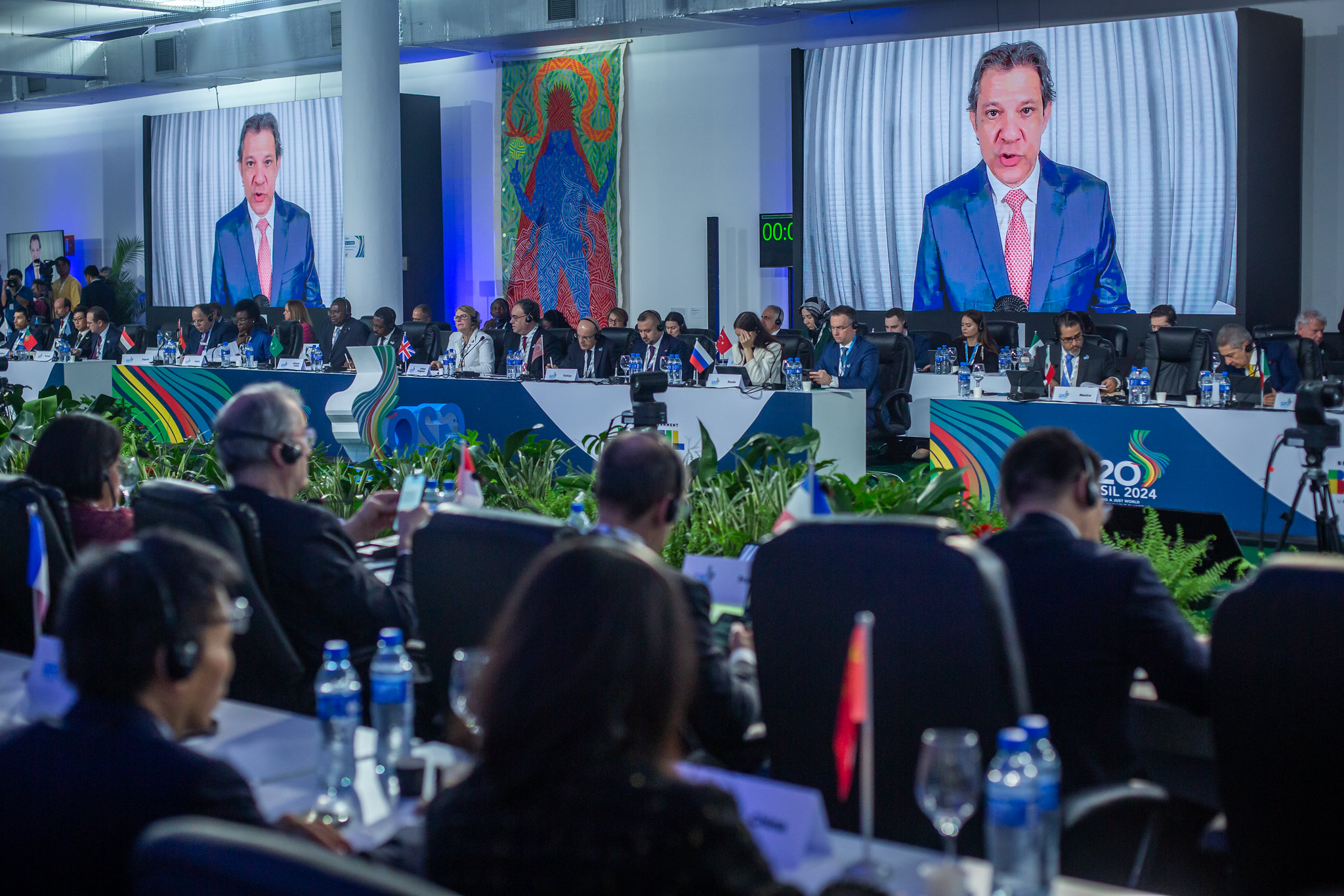"There are no winners in the current globalization crisis," says Haddad
At the opening of the 1st Meeting of Finance Ministers and Presidents of Central Banks of G20 Brasil, the Brazilian Finance Minister defended inclusive and sustainable globalization. "The Brazilian presidency has taken on the challenge of making an inclusive G20, in which we have the chance to make progress on various issues that are dear to us, such as combating poverty and inequality, financing sustainable development, reforming global governance, fair taxation and the problem of chronic indebtedness in various countries," says Haddad in a statement.

Brasil's Finance Minister Fernando Haddad spoke to the ministers from the world's largest economies during the opening ceremony of the G20 summit, which is taking place on February 28 and 29 at the Bienal building in São Paulo. In his speech, Haddad said that the poorest countries are bearing increasing environmental and economic costs, while their economies are under threat from a growing wave of protectionism on the part of the rich countries.
The minister also warned that a significant portion of the poorest countries' income is seriously compromised by debt servicing, in a post-pandemic scenario of high interest rates. "The Brazilian presidency has taken on the challenge of creating an inclusive G20, in which we have the chance to make progress on several issues that are dear to us, such as the fight against poverty and inequality, effective financing for sustainable development, reform of global governance, fair taxation, global cooperation for ecological transformation and the problem of chronic indebtedness in several countries," says Haddad in a statement.
"We have reached an unsustainable situation in which the richest 1% own 43% of the world's financial assets and emit the same amount of carbon as the poorest two-thirds of humanity," warned Haddad
The last wave of globalization left behind a legacy of increased profitability through labor and regulatory arbitrage at an international level. Although millions of people have been lifted out of poverty, there has been a substantial increase in income and wealth inequalities in several countries. "We have reached an unsustainable situation in which the richest 1% own 43% of the world's financial assets and emit the same amount of carbon as the poorest two-thirds of humanity," warned Haddad.
Regarding the global economy, the minister argued that the reaction to the current situation can be attributed to the specific type of globalization that prevailed until the 2008 financial crisis. Global economic integration was confused with the liberalization of markets, the relaxation of labor laws, financial deregulation and the free movement of capital. A complex offshore system was structured to offer increasingly elaborate forms of tax evasion to the super-rich, which culminated in the 2008 financial crisis.
Haddad also discussed the task forces proposed by President Luiz Inácio Lula da Silva for the G20 in 2024: the Global Alliance Against Hunger and Poverty and the Global Mobilization Against Climate Change. "We will start with a debate on strategies to integrate the analysis of inequalities as a fundamental concern of macroeconomic policies. We believe that inequality should not just be treated as a social concern, a mere corollary of economic policy," he concluded.
The Brazilian presidency's proposed themes for the first meeting of finance ministers and central bank presidents aim to create a new globalization based on international cooperation to address social and environmental challenges.
The role of economic policies in combating inequality
Roberto Campos Neto, president of the Banco Central do Brasil, also spoke at the opening ceremony, defending the importance of economic policies in addressing social inequalities and emphasizing the importance of sound macroeconomic policies in promoting long-term economic growth and reducing social disparities.
Campos Neto addressed the negative impact of inflation on poverty levels, emphasizing that it disproportionately affects the most vulnerable, deepening existing social inequalities. He said that under Brasil's presidency of the G20, financial inclusion will be a central part of promoting development and reducing inequalities.
Summary of the meeting of deputy ministers and deputies
In a press briefing, the coordinator of the G20 Finance Track and Secretary for International Affairs at the Ministry of Finance, Ambassador Tatiana Rosito, summarized the meeting of deputy finance ministers and vice-presidents of central banks, held on February 26 and 27. At the meeting, the representatives of the G20 countries and invited guests finalized the communiqué guiding the debates on the international financial situation for the ministers' forum.
The ambassador stressed that Brasil's priorities for the presidency of the group are reflected in the document and pointed out that the work of the G20 Finance Track aims to ensure greater impact and the implementation of concrete commitments by the countries.